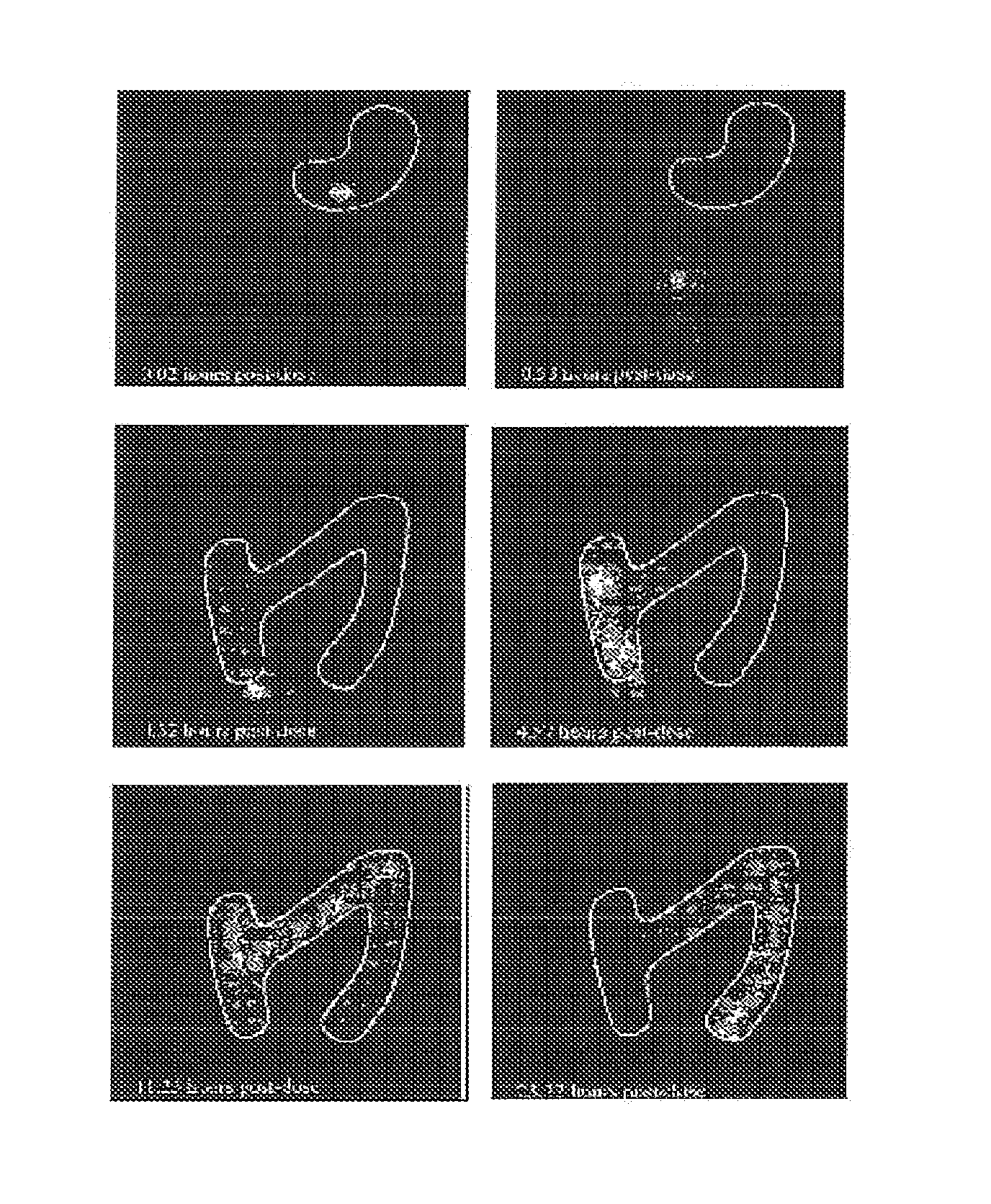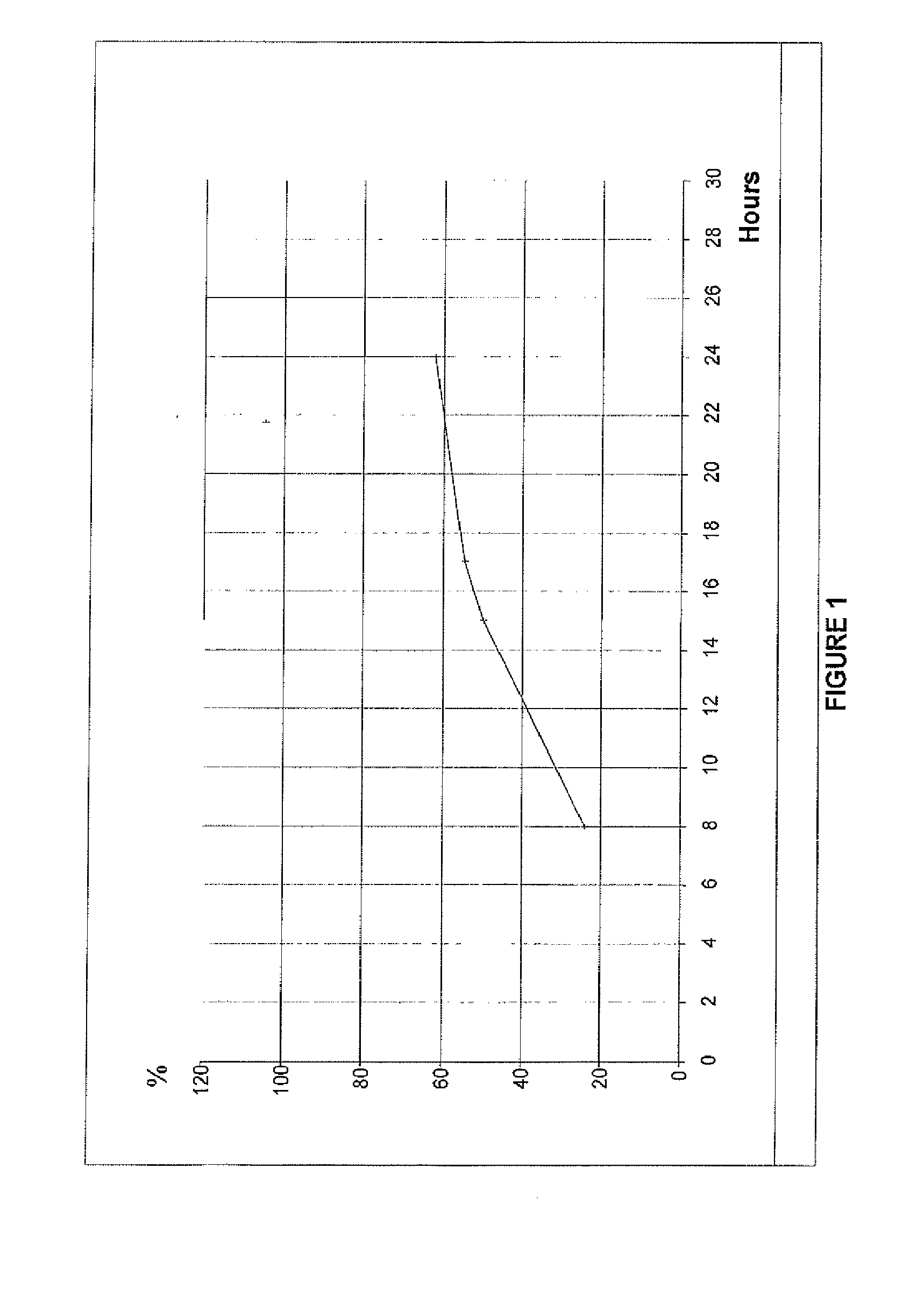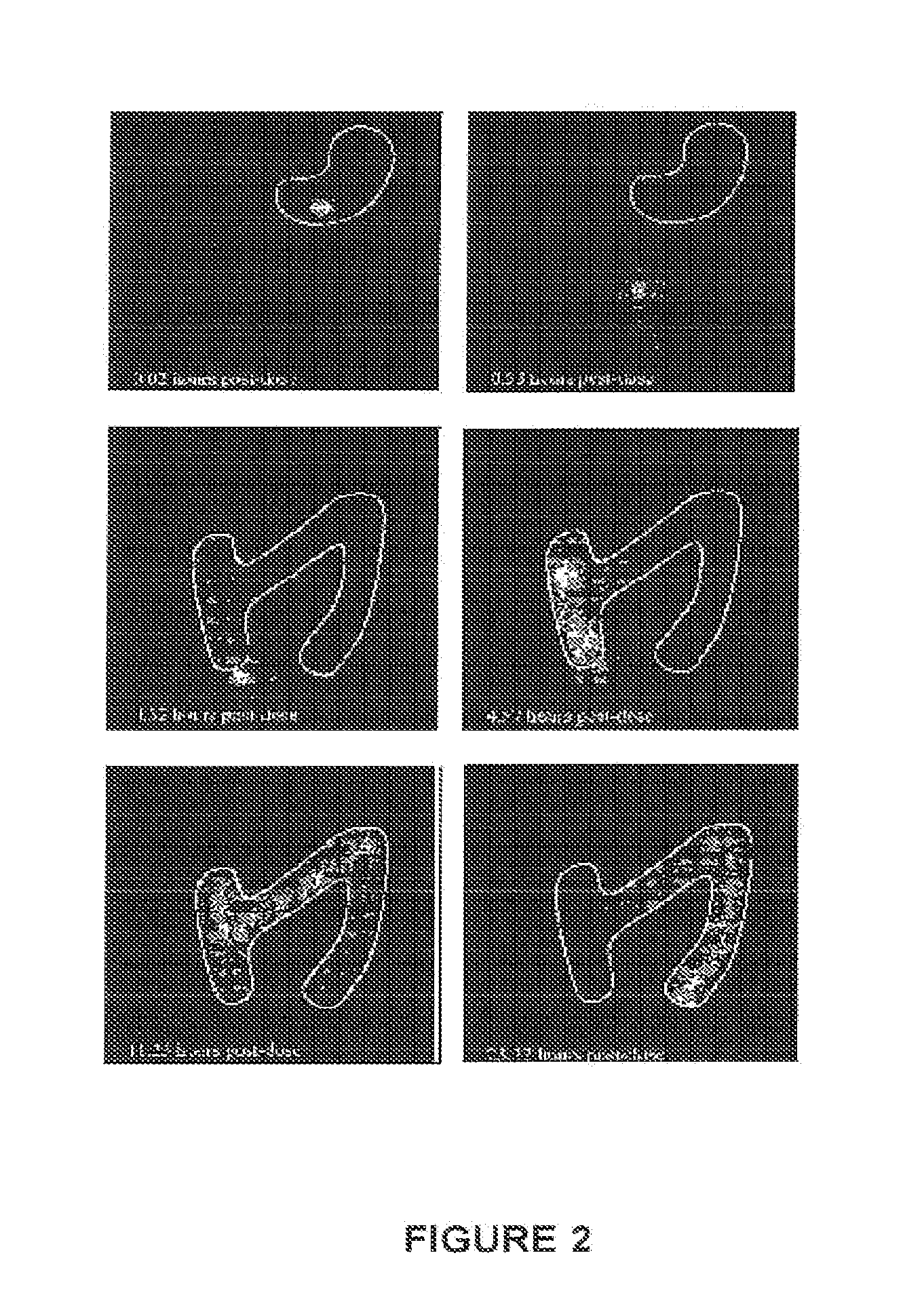Tacrolimus For Improved Treatment Of Transplant Patients
a transplant patient and tacrolimus technology, applied in the field of extended release oral dosage form, can solve the problems of reducing the risk of clinical success, extending the release too much, and seriously affecting the bioavailability, so as to improve the treatment effect, improve the bioavailability, and improve the effect of toxicity
- Summary
- Abstract
- Description
- Claims
- Application Information
AI Technical Summary
Benefits of technology
Problems solved by technology
Method used
Image
Examples
examples
[0251]Materials and methods
Materials
[0252]Tacrolimus (supplied by Eurotrade); batch no RD 03-111[0253]Lactose monohydrate 200 mesh (from DMV)[0254]Granulated silicium oxide, Aeroperl® 300, (Degussa)[0255]Polyethylene glycol 6000, Pluracol® E6000 (from BASF)[0256]Poloxamer 188, Pluronic® F-68 (from BASF)[0257]Glyceryl monostearate, Rylo® MD50, (from Danisco Cultor), Ph.Eur.; batch no. 4010056276[0258]Avicel PH200 (microcrystalline cellulose) (from FMC)[0259]Lactose DCL 11 (from DMV)[0260]Magnesium stearate[0261]Croscarmellose sodium, Ac-Di-Sol® (from FMC)[0262]Eudragit® L30D.55 (from Degussa)[0263]Triethyl citrate (from Merck)[0264]Anti-foam emulsion (from Unikem)[0265]Micro talc[0266]HPMC refers to Metolose 90SH (type 2910, 2208) or Metolose 60SH (type 2910) from ShinEtsu available in various degrees of polymerization (viscosity 3-100,000 cP).
[0267]Tablets, capsules or granules might be enteric coated with different types of polymers such as hydroxypropylmethylcellulose acetate succ...
example 1
Modified Release Poly-Depot Capsule Based on Swelling Hydrocolloid Matrix of Hydroxypropylcellulose
[0281]
Substance%mgTacrolimus0.501.00HPMC20.0040.00Lactose 200 mesh30.0060.00PEG 600034.6569.30Poloxamer 18814.8529.70Total100.00200.00
[0282]Tacrolimus was dissolved in polyethylene glycol 6000 and poloxamer 188 (70:30 w / w ratio) at 70° C. The solution was sprayed on a mixture of 150 g lactose and 100 g HPMC in a fluid bed Strea-1. The granular product was sieved through sieve 0.7 mm and filled into hard gelatine capsules (200 mg).
example 2
Modified Release Poly-Depot Capsule Based on Swelling Hydrocolloid Matrix of Hydroxypropylcellulose
[0283]
Substance%mgTacrolimus0.501.00HPMC 2910 3 cp20.0040.00Lactose 200 mesh30.0060.00Glyceryl monostearate49.5099.00Total100.00200.00
[0284]Tacrolimus was dissolved in glyceryl monostearate at 70° C. The solution was sprayed on a mixture of 150 g lactose and 100 g HPMC in a fluid bed Strea-1. The granular product was sieved through sieve 0.7 mm and filled into hard gelatine capsules (200 mg).
PUM
| Property | Measurement | Unit |
|---|---|---|
| pH | aaaaa | aaaaa |
| time | aaaaa | aaaaa |
| time | aaaaa | aaaaa |
Abstract
Description
Claims
Application Information
 Login to View More
Login to View More - R&D
- Intellectual Property
- Life Sciences
- Materials
- Tech Scout
- Unparalleled Data Quality
- Higher Quality Content
- 60% Fewer Hallucinations
Browse by: Latest US Patents, China's latest patents, Technical Efficacy Thesaurus, Application Domain, Technology Topic, Popular Technical Reports.
© 2025 PatSnap. All rights reserved.Legal|Privacy policy|Modern Slavery Act Transparency Statement|Sitemap|About US| Contact US: help@patsnap.com



